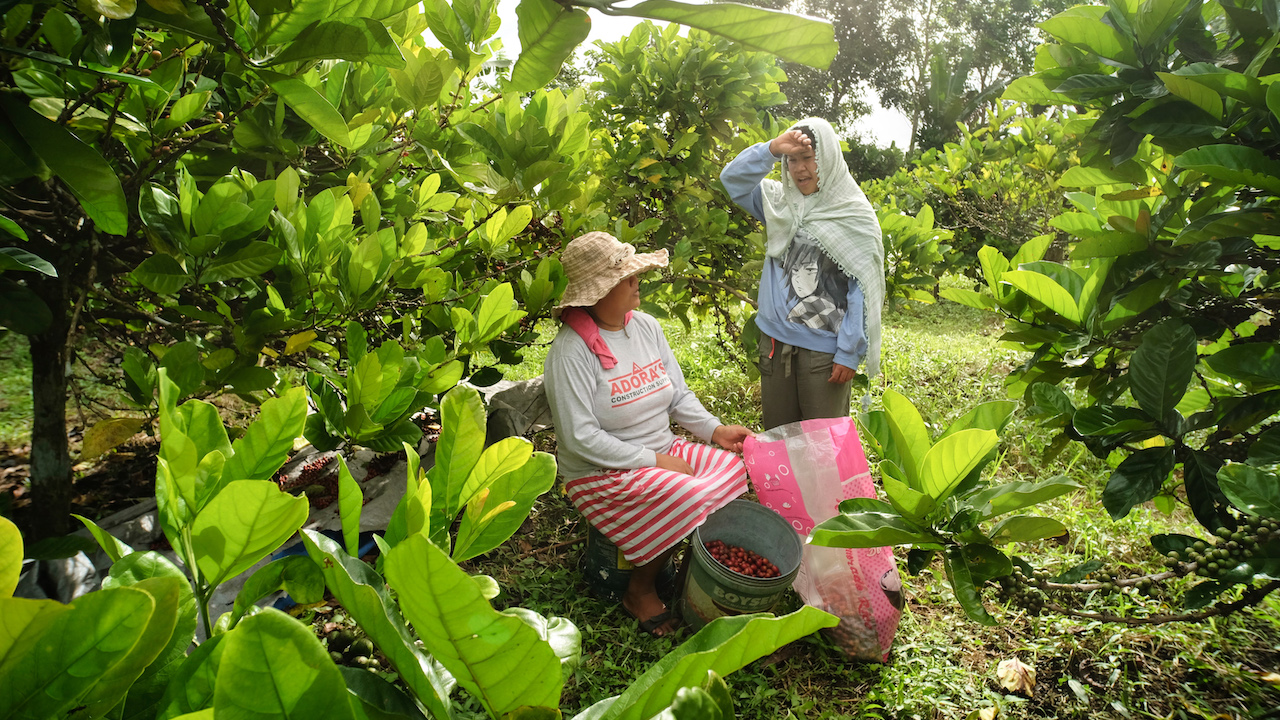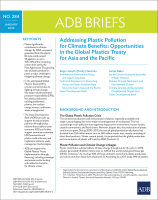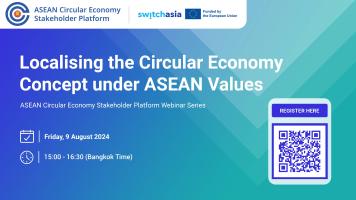
ASEAN is a major producer and exporter of palm oil, crude rubber, rice, sugar, seafood, and fruits. Photo credit: ADB.
Leaders adopt action plan detailing strategies aimed at optimizing existing approaches and exploring innovative initiatives promoting sustainable agriculture.
This article is published in collaboration with BIMP-EAGA.
Faced with a rapidly growing population, changing climate patterns, and food insecurity, ASEAN countries are seeking to coordinate action in their shift to sustainable agriculture.
Sustainable agriculture aims to maximize farm productivity and efficiency while minimizing negative environmental impacts. It involves a holistic approach that integrates social, economic, and environmental dimensions to ensure the well-being of farmers, consumers, and the ecosystem.
“We reaffirm our commitment to promote sustainable agriculture as a fundamental driver of regional development. By embracing sustainable agricultural practices, we can achieve shared prosperity, eradicate poverty, ensure food security, and preserve safe environment for the benefit of present and future generations in ASEAN,” regional leaders said in a declaration adopting an action plan to advance sustainable agriculture.
The action plan details strategies aimed at optimizing existing approaches and exploring innovative initiatives promoting sustainable agriculture. “The action plan will serve as a guiding document to enhance cooperation, coordination, complementation and knowledge sharing on sustainable agricultural development in the ASEAN region,” the leaders said.
Eight out of 10 countries in ASEAN are dependent on agriculture and its production, with the region being a major producer and exporter of palm oil, crude rubber, rice, sugar, seafood, and fruits.
ASEAN wants to shift to sustainable agriculture to ensure the sector is able to produce clean, healthy, and nutritious food, while preserving the environment, providing an equitable distribution of economic wealth, and ensuring the health and safety of not just the food produced but also the health and safety of farming communities. “Sustainable food production systems for livestock, fisheries and aquaculture have the potential to contribute to the preservation of biodiversity and natural ecosystems and decarbonization efforts to contribute to climate mitigation while providing protein sources and livelihood activities,” according to the action plan.
In the declaration, the leaders encouraged members countries to align their agricultural policies, strategies, and investments with the principles and actions on sustainable agriculture, including its integration to their national development plans and the allocation of adequate resources for implementation.
They also encouraged all dialogue partners, international organizations, concerned private sector, and other relevant stakeholders to collaborate with the ASEAN Secretariat and member countries in developing and implementing projects and programs that support sustainable agriculture in the region.
ASEAN will adopt appropriate farming technologies and sustainable natural resources management practices, including support for research and development, innovation, digital transformation, while empowering farmers with knowledge and tools, the leaders said.
They also agreed to strengthen sustainable value chains to empower smallholder farmers and ensure their fair and equitable participation. This entails promoting market linkages and access to finance, infrastructure, and technologies to boost farmers’ productivity and market competitiveness, and in turn, their income.
The leaders also agreed to green the supply chain of agricultural products, including the logistic network, storage, and distribution networks.
ASEAN will support the development and application of new technologies such as artificial intelligence and hydrogen for green transition in agriculture, especially in developing smart and low-emission agriculture.
ASEAN also committed to promote climate-resilient farming practices that enhance adaptive capacity and mitigate greenhouse gas emissions. The leaders encouraged member countries to utilize advanced low-carbon technologies, share best practices in greenhouse gas emissions reduction in agriculture, promote research, and provide technical support to improve resiliency in the context of climate change.
The leaders also agreed to enhance the safety, quality, and nutritional value of agricultural products by adhering to food safety standards, promoting good agricultural practices, encouraging the consumption of diverse, nutritious, and locally produced foods, and strengthening collaboration among relevant agencies and stakeholders to effectively address challenges on food safety.
ASEAN will conserve biodiversity and improve ecosystem services by integrating conservation and restoration of natural resources to promote sustainable use and management, the leaders said.
ASEAN will also promote regenerative agriculture toward fostering sustainable farming practices that enhance soil health, improve water management, and preserve biodiversity, ensuring a healthier and more resilient environment for future generations in collaboration with the private sector.
The leaders said ASEAN will strengthen regional and subregional cooperation and partnerships to exchange best practices, knowledge, and technologies in sustainable agriculture by leveraging existing regional mechanisms and fostering collaboration among member countries.
They also agreed to strengthen the role of farmers and other concerned stakeholders in decision-making and implementation of sustainable agriculture initiatives.
ASEAN will also enhance collaboration with the private sector, and international organizations such as the Food and Agricultural Organization and Economic Research Institute for ASEAN and East Asia to promote public–private partnerships and provide technical knowledge and capacity building toward sustainable agri-food systems.
This article was first published by BIMP-EAGA on 31 December 2024.

BIMP-EAGA
The Brunei Darussalam–Indonesia–Malaysia–Philippines East ASEAN Growth Area, or BIMP-EAGA, is a cooperation initiative established in 1994 to spur development in remote and less developed areas in the four participating Southeast Asian countries.

